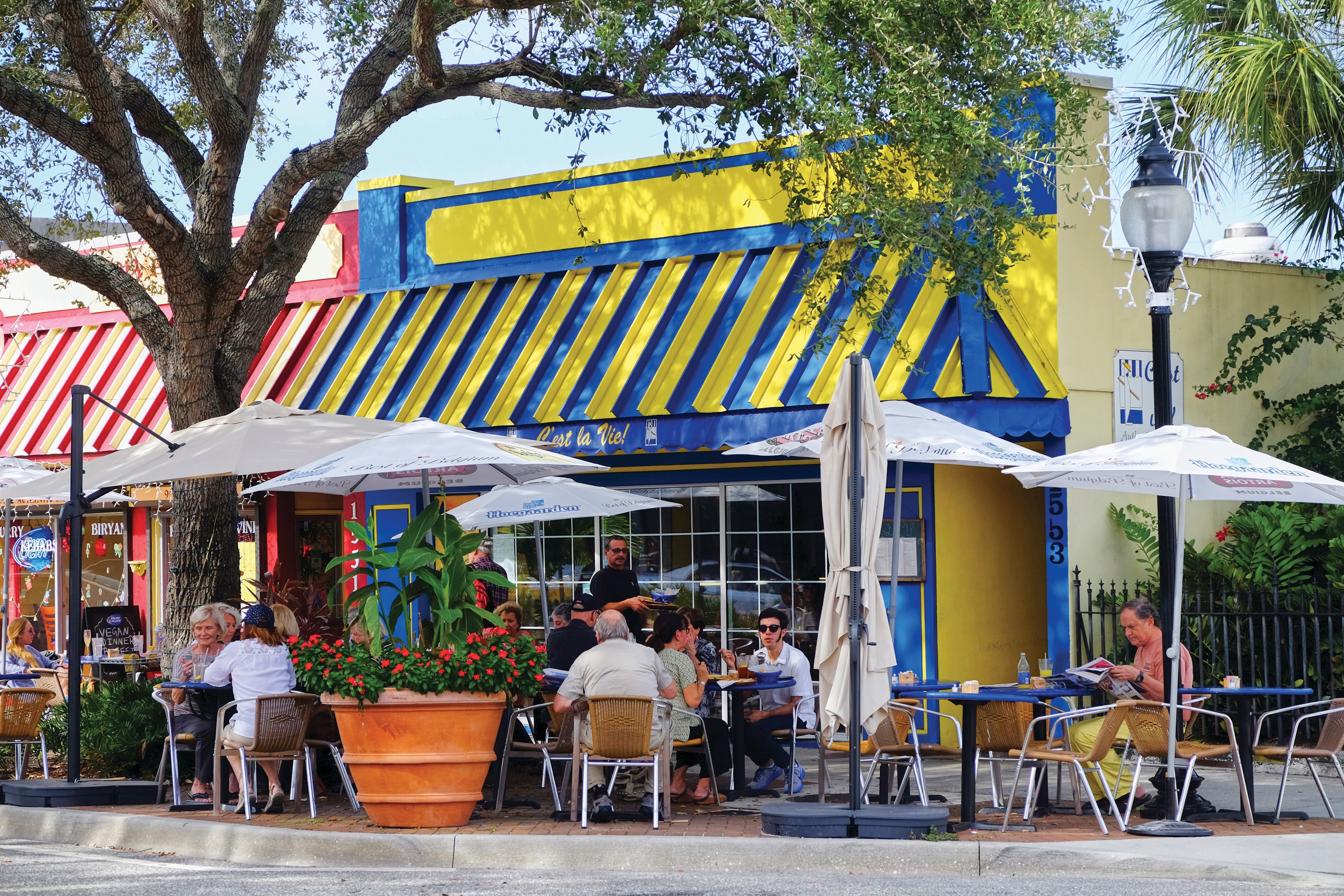How the Coronavirus Relief Act May Help Struggling Restaurants

Downtown Sarasota's Sage has been temporarily closed because of the COVID-19 pandemic.
Image: Daniel Perales
Nearly 3.3 million Americans requested unemployment assistance last week, many of them workers in the accommodations and food services industries, which have been hit hard by closures and cancellations related to the COVID-19 pandemic.
According to figures from the National Restaurant Association, restaurant sales are down by 47 percent this month. Three percent of restaurants have permanently closed because of the pandemic, another 44 percent have temporarily closed and 70 percent have laid off workers or reduced their hours.
In Sarasota, some restaurants have scrambled to come up with creative ways to offer delivery and takeout. Other restaurants, like Sage, The Bijou Café and Lemon Tree Kitchen have already temporarily shut down.
"It's an extraordinary time," says Geoff Luebkemann, a senior vice president with the Florida Restaurant & Lodging Association. Past downturns have arrived gradually, he says. This one has hit with sudden force. "The revenue spigot has been turned off," he says.
More than 74,000 people in Florida filed for unemployment claims last week. According to Luebkemann, the restaurant industry is likely underrepresented in that total. Overall, Luebkemann says, the restaurant industry accounts for 14 percent of the Florida workforce. And when restaurants struggle, so do support services, like linen companies. "You're talking about a giant segment of Florida's economy," says Luebkemann.
According to Luebkemann, the most pressing needs for restaurant owners to stay in business are liquidity and credit, as well as forbearance on expenses like mortgages and tax payments. Restaurant workers, meanwhile, also need support. "We are nothing without our employees," he says.
A $2 trillion stimulus package approved by the U.S. Senate on Wednesday and the House of Representatives on Friday may help. The bill contains at least $349 billion in federally guaranteed loans for businesses that employ fewer than 500 people that can be used to pay staff and other expenses. The program would also allow restaurants to rehire employees who have been laid off due to the COVID-19 pandemic, and includes employee retention tax credits and other programs that could affect restaurants. (You can read a National Restaurant Association analysis of the Senate version of the bill here.)
Luebkemann says the Florida Restaurant & Lodging Association hasn't yet delved into the details of the law, but is monitoring it. "We don't yet know what the specifics are," he says.
In a press release, Sean Kennedy, the National Restaurant Association's executive vice president, called the Senate version bill "an important first step to help restaurants weather the storm, take care of our employees, and prepare for when we are given the signal to open our doors once again."



